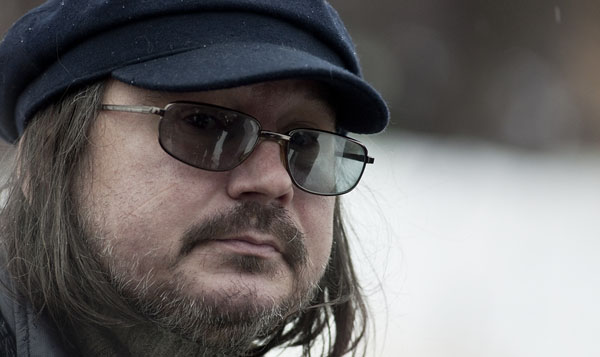“Alexei Balabanov, one of the most prominent Russian directors of the 1990s and 2000s, died on May 18 at the age of 54 in a village near St Petersburg.” In the Hollywood Reporter, Vladimir Kozlov notes that producer Sergei Selyanov broke the news yesterday on Russian radio.
Just this Friday, Edinburgh’s Filmhouse released Balabanov’s 2010 film The Stoker in the UK, an occasion for Michael Brooke to place it in the context of the robust oeuvre of this “first post-Soviet Russian director to gain international prominence, thanks to the contrasting yet complementary one-two punch of Brother (1997) and Of Freaks and Men (1998).” The Stoker centers on Skryabin, “a man who spends much of his time fuelling a gigantic industrial furnace.” Brooke for Sight & Sound:
The film is set in the lawless 1990s, when Russia was being systematically carved up by oligarchs and the Mafia in the aftermath of the Soviet Union’s collapse… If The Stoker is never as relentlessly grim as Cargo 200 (2007), which infused a similarly bleak portrait of the fag end of the Soviet Union with the relentlessly clammy immediacy of a 1970s Tobe Hooper flick, it will come as little surprise to anyone even vaguely familiar with Balabanov’s oeuvre that the body count is substantial and that almost all the principal characters fail to survive to the end. In this respect, the film is squarely in line with the Brother diptych, War and the gangster film Dead Man’s Bluff (2005).
But The Stoker is also strongly redolent of Balabanov’s weirder, more wayward features. Skryabin, whose ethnic origin visibly marks him as an outsider regardless of his status as a former Hero of the Soviet Union (for bravery in Afghanistan), is close kin to the strangers in Happy Days (1992) and the Kafka adaptation The Castle (1994). Lengthy journeys through the ever present snow, on foot or by tram, recall Of Freaks and Men as well as the work of other fetishistic observers of facial and body language such as Alan Clarke, Béla Tarr or Balabanov’s compatriot Andrei Tarkovsky.
Last month, the Bradford International Film Festival paid tribute with screenings of three of Balabanov’s films, all shot through with “jet-black humor, outbursts of startling violence, challengingly ‘crazy’ soundtracks and an ingrained cynicism tempered by glimmers of hard-won optimism. As Anna Niemen wrote in an extended profile for Mubi, ‘Balabanov remains a somewhat mysterious, contradictory and controversial figure in Russian cinema… accused of many sins, from being “unpatriotic” to “a degenerate.” … His point of view is that of a grownup, who has the courage to sweep aside the conveniently nostalgic view of history, to look the present straight in the eye and to shake us, his audience.'”
“Although no cause of death has been stated, for some time already the director was known to be suffering from severe health problems,” notes Ard Vijn at Twitch. “He presented his latest film, Me Too, at the International Film Festival Rotterdam a few months ago, in person…. At that point the rumor was already that this was probably his last film…. In Me Too he toys with the idea of death, and indeed the film also shows his own, in detail, in a whimsical and jocular fashion. Which is fitting for a director who so often injected the blackest of jet-black humor in his films, even during the most uncompromising violence.”
Updates, 5/20: Ronald Bergan for the Guardian: “‘I don’t make movies with ideas. Ideas make for bad cinema,’ he said. ‘I don’t make my movies for the intelligentsia, but for the people. That’s why they like my films.’ This was demonstrated by the commercial success of Balabanov’s films in Russia, starting with the groundbreaking gangster movie Brother (1997). ‘My films are about me, always,’ he claimed—a statement that should perhaps be taken figuratively given the extreme nature of his characters. However, many of his films share the theme of an outsider entering an unfamiliar and often hostile environment, and as a young man from the provinces… Balabanov himself set out to conquer Moscow and Saint Petersburg, while remaining outside the cinema elite, which he opposed.”
Vadim Rizov has reposted his 2008 conversation with Balabanov about Cargo 200 “that disappeared from the internet when the archives of an older incarnation of Spout blog went down.”
Update, 5/22: “At his death, he was planning to make a film on Stalin, portraying him as a godfather of crime,” notes Douglas Martin in his obituary for the New York Times.
For news and tips throughout the day every day, follow @KeyframeDaily on Twitter and/or the RSS feed. Get Keyframe Daily in your inbox by signing in at fandor.com/daily.




